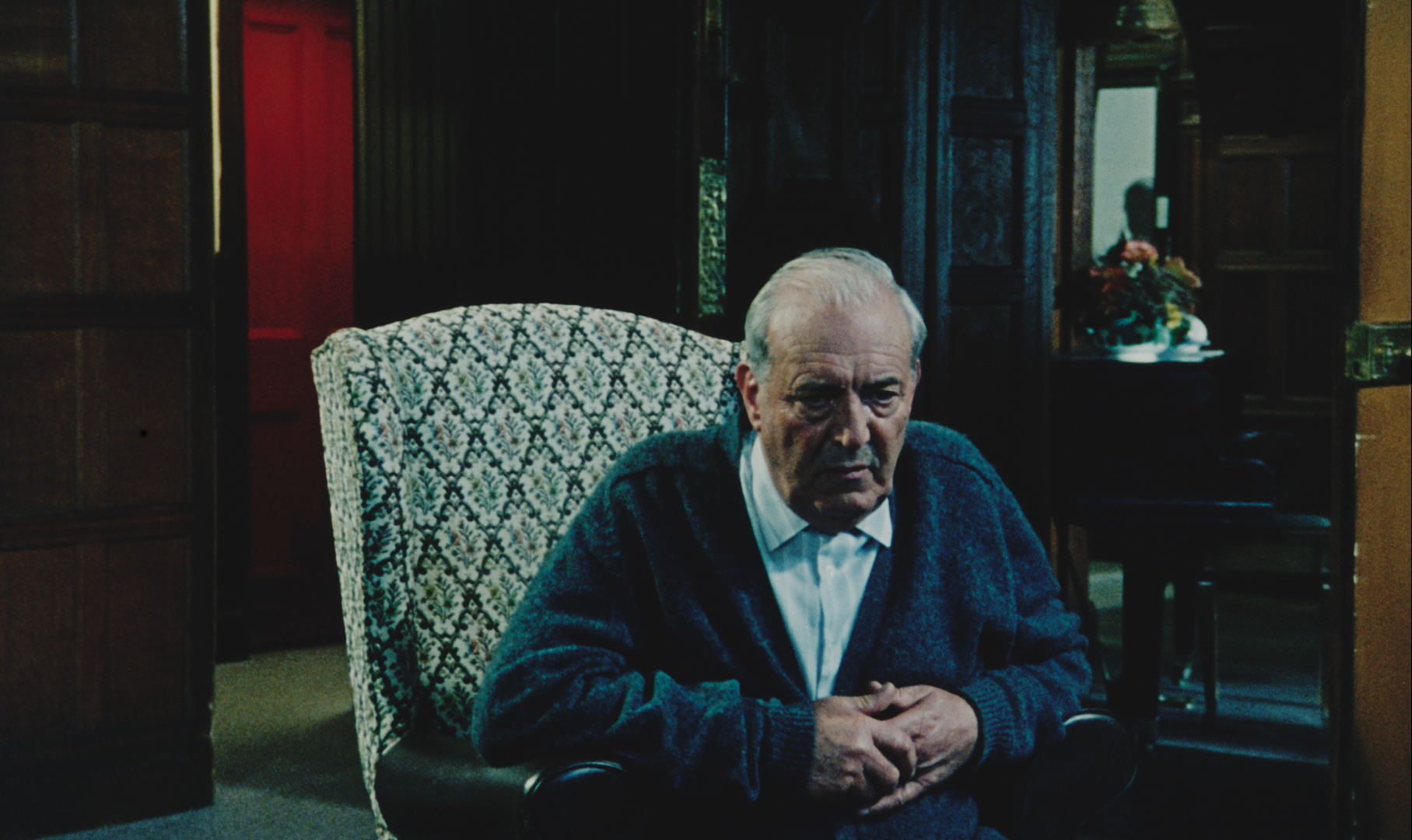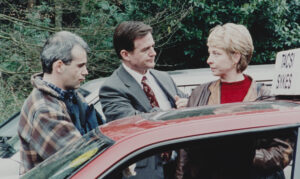
Do Not Go Gentle: On the Welsh Class-Politics of Care
Diffwys Criafol is the pen-name of a Cardiff based writer with a deep interest in social class. The themes around her work centre around this subject usually in relation to her own life experience. Find her on Linktree / Instagram
Translated into Welsh by Mair Lannen
“[Welsh culture is] a post-colonial culture, conscious all the time of its own real strengths and potentials, longing to only be itself, to become its own world but with much, too much on its back to be able, consistently, to face its real future” – Daniel Williams on Raymond Williams work in the introduction of ‘Who Speaks for Wales’ 2008
This is a film reckoning not only with the story of one family, but with the dizzying speed of change that has occurred in Wales over the 20th century. Haunted by the past, bewildered by the present and looking to the future with a careful hope.

“Do not go Gentle” was released in 2001 but was set in the period running up to the 1997 UK general election – the climax of the film coinciding with the election results night when “New” Labour won after 16 years of Tory rule. However, this is not just a historic-political film, or a film about the problems of aging in an increasingly individualistic neoliberal society. It goes much deeper. Its portrayal of the family dynamic, speaks to the fundamentals of our psychology as a colonised people. Torn between assimilation into joining and participating in a system of impersonal brutality versus the counter struggle to this – the impulse to hold on to our culture, language, class and place.
For me, the characters are an allegory of the class tensions and directions in the context of Welsh speaking Wales – known in Welsh as ‘Y Fro Gymraeg’. William Davies, the Father, appears to have Alzheimer’s disease and needs to be looked after – but who is going to take responsibility for his care? William Davies, a former quarryman and Elder (Blaenor) in the Chapel is a classic depiction of the traditional Welsh working class man of the 20th Century.
The ensuing conflict between his children on the subject of William’s care becomes a personification of the class tension arising from fluctuating class mobility in families. The eldest son – John Meredydd – who is upwardly socially mobile, Maureen – a single mother, meanwhile, is relegated downwards. Alun Cledwyn, the third sibling is at a crossroads, struggling to hold on to the middle class life he has built while contending with his chronic illness of alcoholism.
John Meredydd, who has physically and mentally distanced himself from the family to make his fortune, now looks down upon his (working class) family with disdain. Maureen is expected to do the unpaid caring labour, raising her three children alone and juggling two jobs. Alun Cledwyn is torn between ‘Y Fro Gymraeg’ and the world, his middle-class aspirations in contradiction to his connection to home, his ‘etifeddiaeth’. The amalgamation of land, community, language, family and Welshness itself – at one point in the film described as a noose around his neck. These are the contradictions of Welshness distilled to its clearest form.
This film also skillfully depicts the human consequences of the privatisation of care. We bear witness to how such state policies rob individuals and their families of their dignity in the last months of life.
The title of this film in Welsh is “Oed yr Addewid” which literally means “The Promised Age”. In Welsh language culture (but originating from the Bible) this saying means that we are “only promised to live to 70” – everything after that is just a bonus apparently! The opening of the film is Willam’s 70th birthday. It feels significant to me that since this film was first released, these precious few years of retirement before our “promised time” is now spent working. Since the Millenium, the one sided class war against us has gone into overdrive. We can no longer expect to look forward to a few years of rest and family time in retirement while we still have their health. Now, many people (my own father being one of them) are working physically demanding jobs well into their 70’s while contending with a range of health conditions.

The depictions of class throughout the film are beautifully thoughtful and nuanced. This is a rare cultural artifact that I feel succeeds in honoring the complexity of class in the Welsh speaking context. This is especially interesting today after what feels like an age of endless austerity since the 2008 crash that has plunged 22% of adults and a third of children into poverty in Wales, with much of this concentrated in the Welsh speaking heartlands.
This is a film that has retained its relevance to our contemporary lives. The simultaneous crises co-occurring within one family, their relationships to one another, and its bravery in dealing with subjects that many of us would frankly rather not face. Death, insanity, class, identity, the loss of meaning. The intensity and existential angst of Welsh speaking communities. Addiction, gender roles and how we treat our elderly are all themes raised in this film. There are plenty of challenging subjects, however, for me, it felt cathartic to watch.
The film is imbued with a sense of determined hope, the dark humour and sharp working class wit in the dialogue helps carry the heavy themes. This was genuinely one the best films I have watched in a long time in any language. Its release is timely – we need to face the issues raised in this film on individual and collective levels now more than ever.
A new scan of Oed Yr Addewid is coming to cinemas in 2025 from The National Library of Wales Screen and Sound Archive in partnership with Film Hub Wales.
This article was commissioned by Film Hub Wales as part of our Made in Wales strategy, which celebrates films with Welsh connections, thanks to funding from Creative Wales and the National Lottery via the BFI.
It was first published in Buzz Magazine.


